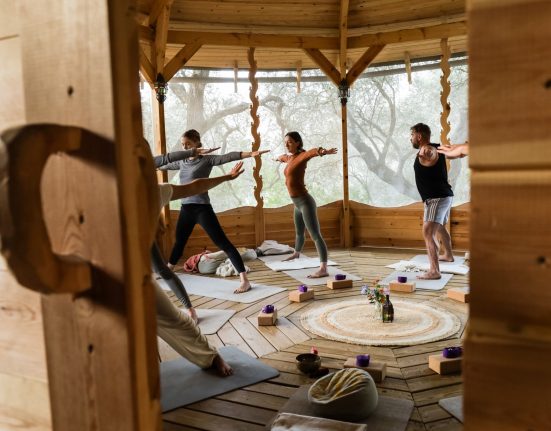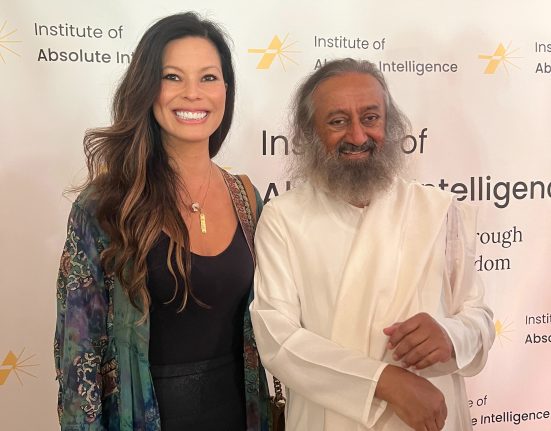A Yoga Instructor Uses Asana Practice to Break Down Stereotypes Among Locals and Afghan Refugees in an Austrian Alpine Village

A few months ago, I began volunteering with a refugee agency that helps those from Afghanistan, Syria, Turkey, and elsewhere.
was paired up with a young man from Afghanistan, Khalil, because I teach yoga and he experienced in meditation. After a couple of hikes and a few cups of tea, we decided to teach yoga and meditation at the refugee center where he lives.


The class was so successful that the agency asked us to teach in Kufstein, where they have a larger refugee center to hold events.
Khalil and I opened the next class to Austrian locals, expats (from Greece and Latvia mostly) and refugees alike. Our hope was that bringing together people through yoga and meditation would help build community.
Not everyone here is happy about having refugees living in town; there area lot of stereotypes and anxieties about them. But the better we know each other, the fewer stereotypes we have about each other, the less there is “other” and “them.”
All of us have had to correct stereotyping. When I was young and traveling, people of ten would ask me if I carried marijuana as soon as they heard I was Dutch. When my daughter traveled to China during her American high school days, her host dad was disappointed when he learned that we did not own a gun. He had assumed all Americans carry them.
Khalil and I hoped to mitigate some stereotypes, and to ease locals and refugees living among each other.
I didn’t know if anyone would show. My neighbors said that they might come and I “requested” my husband to join. From Khalil’s home, seven refugees said they would attend.
But when it was time to leave for the class, all the refugees who had signed up backed out. I was bummed. And I was embarrassed to admit to my family and neighbors that I couldn’t pull off something like this.
Yet as we were waiting for the arrival of our social worker, who helps facilitate our classes, two cars pulled in with my neighbor’s friend and one of my regular students from Greece.
Then a commotion started in and around the refugee center. We saw windows open with people sticking out their heads, curious to find out what was going on. We heard cheering and shouting in various languages, and people laughing. A few refugee strickled into the yoga room. 48 Following that, a few more cars pulled in and locals got out with their yoga mats in hand.

Ultimately, we had 25 students, a sound mix of 15 refugees, some expats, and locals. In fact, there were so many that we ran out of yoga mats and ways to translate for all who were there.
We taught in German, and those who didn’t understand the language tried to copy the poses from sight. We performed partner poses, cheered each other on in difficult poses, and laughed when someone grunted. Grunting in a yoga pose needs no translation!
After class, locals and refugees asked when we were going to do this again. We plan on monthly classes to continue community connections.
And I plan on continuing to bring my husband. Every refugee he spoke with asked about Bollywood when they found out he was Indian. Turns out that Hindi movies were the perfect common icebreaker.

“Bollywood is Universal” is an excerpt from Anna’s new book, ‘A Gorgeous, Messy Life: Snapshots of Gratitude from a Global Yogi’ available on Amazon.com, Amazon. de, and special order at your local bookshop everywhere.
Anna Folmer is yoga teacher with 500+ hours of formal training. She has taught on three continents. Find Anna at www. annafromsweden.com and at @ AGorgeousMessyLifeBook.







Leave feedback about this